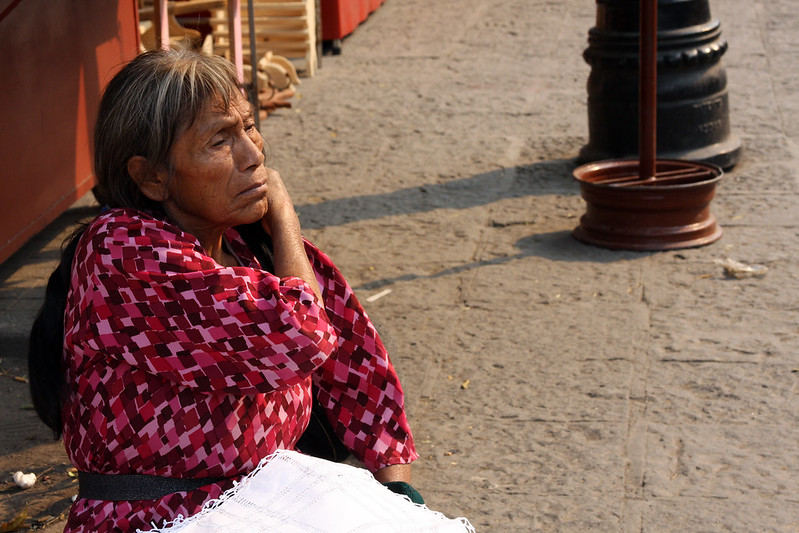The Solutions to Elderly Poverty in Nauru
 In Nauru, the number of citizens aged 55 and older consists of roughly 10% of the total population. The vulnerability of older adults in economically challenged nations like Nauru underscores the importance of international partnerships. Countries such as the United States (U.S.) can play a vital role in collaborating with economically deprived governments to provide necessary support for elderly populations as they transition into their senior years.
In Nauru, the number of citizens aged 55 and older consists of roughly 10% of the total population. The vulnerability of older adults in economically challenged nations like Nauru underscores the importance of international partnerships. Countries such as the United States (U.S.) can play a vital role in collaborating with economically deprived governments to provide necessary support for elderly populations as they transition into their senior years.
In Nauru, 24% of the population lives below the basic needs poverty line, highlighting a persistent issue of elderly poverty. This challenge has been addressed for years through efforts by both the Nauruan government and nonprofit organizations. Given the substantial proportion of elderly individuals in the population, it is crucial to strengthen support systems. These measures not only aim to reduce poverty but also to preserve Nauruan history and cultural heritage, with the help of foreign aid and continued government backing.
Social Protection Programs: Elderly Allowance
Nauru has established Social Protection Programs and activities to support qualified members of its community. Current government initiatives include Birth Claims, Death Claims, Disability Allowance and School Feeding Programs. Additionally, since 2005, the reformed Nauruan government has introduced an elderly allowance aimed at assisting impoverished seniors and providing much-needed financial support for the elderly population.
Eligible members of the community in Nauru receive $50 every two weeks as part of the Elderly Allowance program, supporting individuals aged 60 and above. In 2012, this amount was increased to $75 following efforts by the community to enhance financial support for seniors. However, with an average cost of living in Nauru of $1,000 per month, this assistance falls short of covering basic needs. Additionally, financial aid is not available to those with other income sources or those still on the waitlist, highlighting ongoing challenges in addressing elderly poverty in Nauru.
NIANGO
With only 25 members in 2007, Nauru Island Association of Nongovernmental Organizations (NIANGO) was the only nongovernmental body fighting general poverty in Nauru. NIANGO emphasizes communications, human rights and effective management within Nauru. In addition, the NGO plays a crucial role in facilitating the work of other not-for-profit organizations in Nauru. As one of the most impoverished countries in the world, Nauru depends heavily on foreign aid and organizations like NIANGO work to serve the entire community.
NIANGO functions as a coalition that fosters collaboration among NGOs, offering support in advocacy, information sharing and networking with both international and regional organizations. It also assists in capacity-building activities and institutional strengthening for its members. By amplifying the voices of struggling populations, including older adults, NIANGO helps drive change in Nauru through the mobilization of funds and resources.
Intergenerational Trust Fund for the People of Nauru
The Minister for Finance oversees the Intergenerational Trust Fund (ITF) in Nauru, which receives financial support from countries like Thailand, New Zealand and Australia. Between 2020 and 2021, Nauru received significant funding through the ITF, with cash contributions of $1.8 million from New Zealand and $3.5 million from Australia.
The ITF was initiated in 2009 with the goal of investing in phosphate mining, ensuring that Nauruans would benefit from royalties. Through the support of the ITF, Nauru’s elderly population, along with the broader community, receives financial assistance that helps sustain their livelihoods and improve overall living conditions.
Final Note
While there is still work to be done to address elderly poverty in Nauru, organizations like NIANGO and initiatives such as the ITF are making meaningful progress. The people of Nauru are in urgent need of continued support from governments capable of assisting, such as Australia, New Zealand and China. With increased backing, there is hope that the elderly population can enjoy a higher standard of living in their later years.
– Alena Thomas
Alena is based in Houston, TX, USA and focuses on Good News and Global Health for The Borgen Project.
Photo: Flickr
